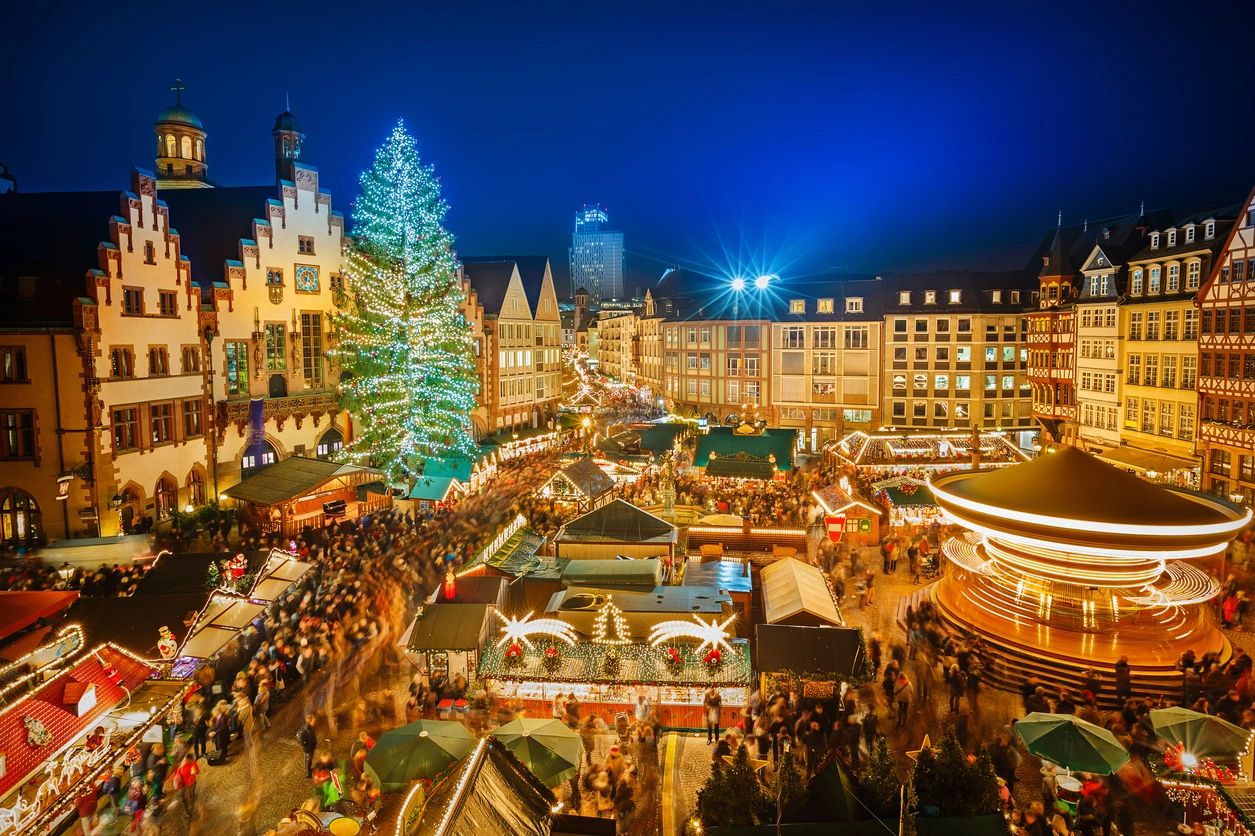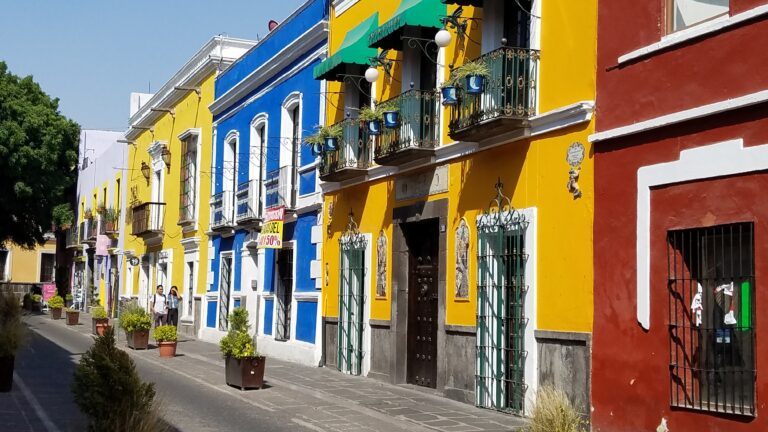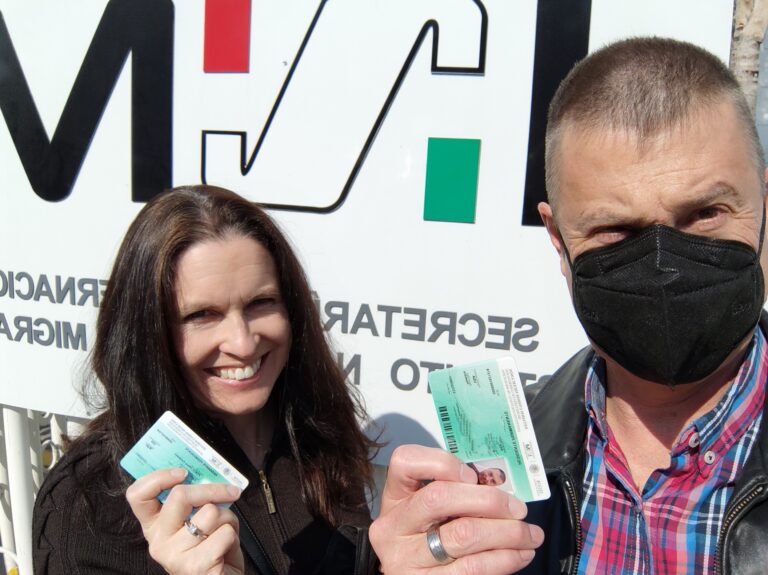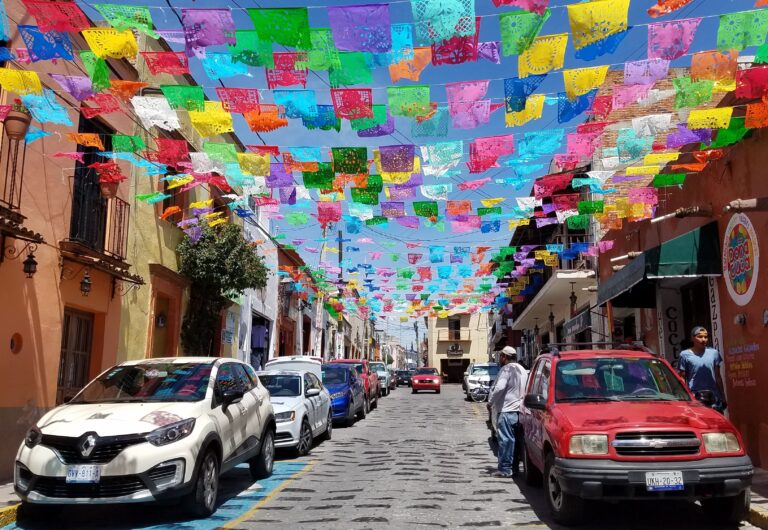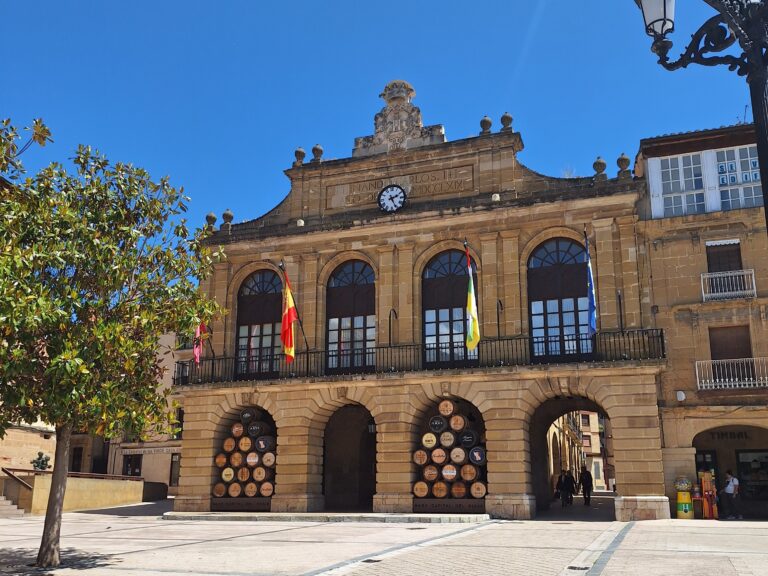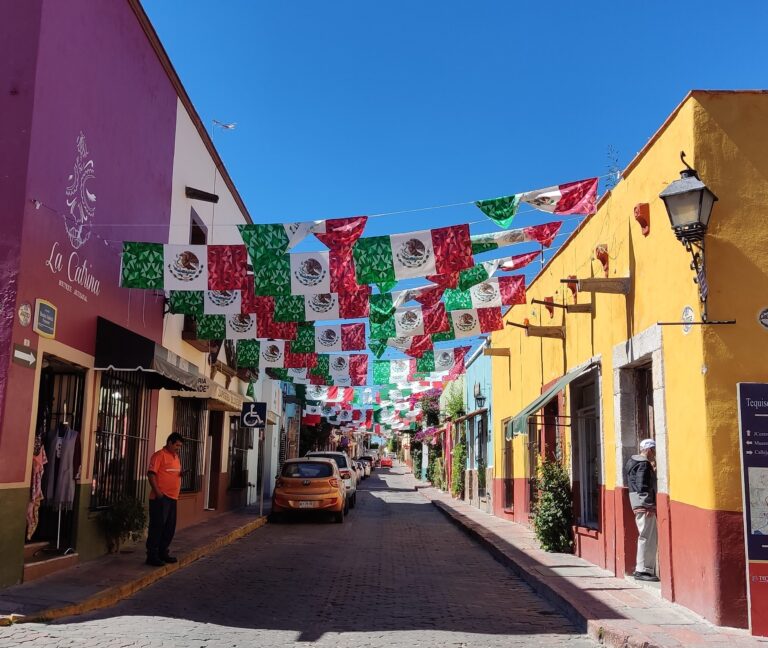How to Plan the Perfect Trip to Europe’s Best Christmas Markets
I’m obsessed with Christmas time, and there’s nothing like a European Christmas market (or 10) to really get into the spirit of things. When I was a kid living in Germany, I always looked forward to the Christmas season. Back then, they were small, maybe just filling one plaza or two. Today, major cities have multiple Christmas markets spread across town.
Planning the perfect Christmas Market trip takes some time and research. Unfortunately, you won’t be able to visit every single Christmas market in just one trip. So here’s a list of things to know and research to plan the best Christmas market trip for you.
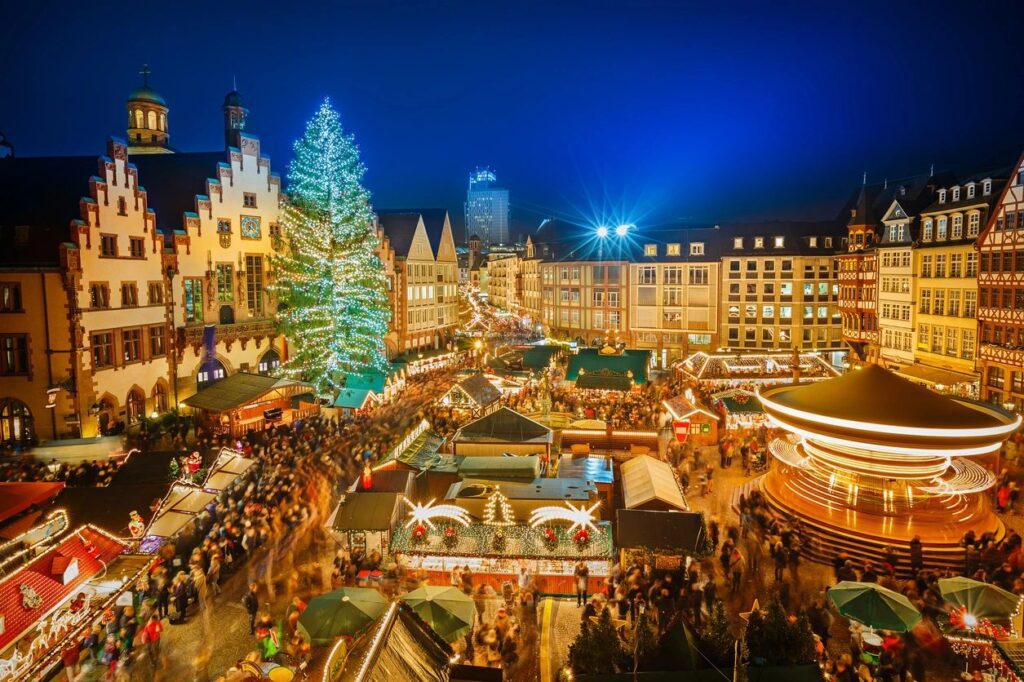
Did You Know?
With over 2,500 Christmas markets in Germany alone, and many markets only open for four weeks on average, you won’t be able to visit every Christmas market in one season. No matter what Christmas markets you visit, you will love them, and probably start planning your next trip before the plane takes off for home.
The number of Christmas markets you can squeeze into your vacation dates depends on where you are coming from, how much time you have, and your budget. So let’s dive into our checklist below to start our Christmas market planning.
Disclosure: Some of the links below are affiliate links which means we will receive a small commission when you make a purchase at no additional cost to you.

What Makes a Christmas Market Special?
Every Christmas market will have cute little huts, lights everywhere, handmade ornaments, souvenir mugs, nativity scenes, and mulled wine. What sets them apart is what they offer in food, handmade items, and the background. Not surprisingly, the background matters. Medieval castles, churches, town halls framed in lights, and maybe snow-capped mountains if you are lucky, all these things make a Christmas market more magical.
One other thing that makes a Christmas market special is the food. I’ve seen some people actually complain that some Christmas markets were all about food. I don’t see the problem with this! It’s not just what you see or hear at a Christmas market. It’s what you smell and taste.
Believe me, I’ve been to several Christmas markets around the world, and without the smell of fried dough, chocolate, and candied nuts, it could be any old Tuesday market.
When Should I Start Planning My Christmas Market Trip?
You might be surprised by this, but I started planning my 2024 Christmas market trip in November 2022.
This might be excessive to some, but I do recommend planning at least a year in advance. Here’s why:
- When are Christmas markets open?
- What are the best flights and when should you buy tickets?
- Should you drive, take a train or bus, or go on a river cruise?
- When are Christmas markets open?
- Are Christmas markets free?
- When does it get dark in Europe?
- What to pack/wear to Christmas markets in Europe?
- Do Christmas markets take credit cards?
- How many Christmas markets should I visit?
- When is the best time to book accommodations, flights, trains, etc.?
Let’s take a look at each of these questions in more detail.

1. When Are Christmas Markets Open?
Most Christmas markets will be open the last weekend in November through December 24th in Germany, France, and Austria. Some Christmas markets in Belgium and Italy won’t open until the first weekend in December. In the big cities, the Christmas markets are open every day, but in smaller towns, they may just be open on the weekends for Advent.
Many Christmas markets in Germany will close on December 23 or 24, while in Spain and Italy, they will stay open until January 6.
If you plan to travel to different markets, check their dates as some will be open every day of the week while others will only be open on the weekends.
For example, near Strasbourg, France, the towns of Colmar, Eguisheim, and Riquewihr are open every day, but Kaysersberg and Ribeauville are only open on the weekends.
Travel Tip:
Lots of Christmas Markets in Germany and Switzerland are closed on Totensonntag (Silent Day) which typically is the last Sunday in November.
- 2024- November 24
- 2025- November 23
- 2026- November 22
- 2027- November 21
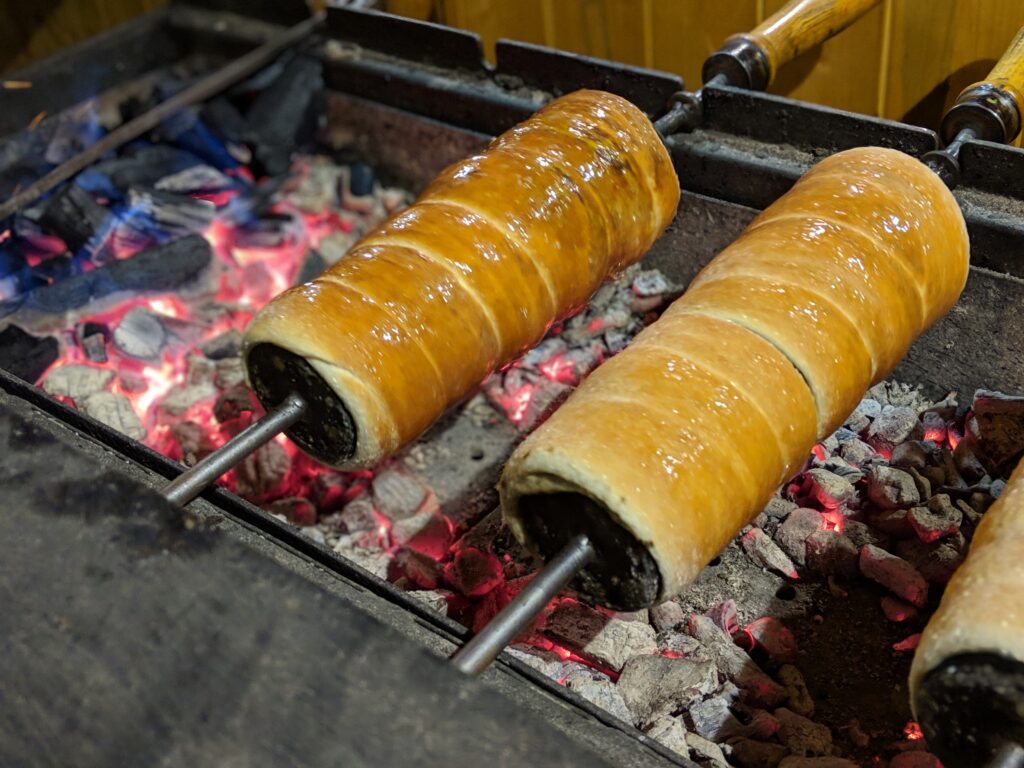
2. What Are the Best Flights?
When Should You Buy Tickets?
For those that live in Europe, traveling is easy for a day trip, long weekend, or 2-3 weeks. For those of us who live on the other side of the world (North America, Australia, and other continents), there’s a lot more planning involved. Our gateways to Europe are more limited.
Airline prices for November and December are very reasonable 4-6 months out. I was looking at prices in April, July, and August for a November trip, and prices did not change much.
Be aware that airline prices do go up usually after December 13th, so if you are planning to visit the markets closer to the Christmas holiday, you will pay more for the flight and accommodations.
Getting to Europe By Plane
The most popular airports with international connections in Europe are London, Paris, Amsterdam, Frankfurt, Munich, Vienna, Berlin, Madrid, and Zurich.
Check what cities you can easily connect to from your area in the world. From these airport hubs, it’s easy to take other flights or trains to other cities.
Travel Tip: Use flightconnections.com to see what cities are easy to get to from your nearest airport.
3. Should You Drive, Take a Bus, or Go on a River Cruise?
Getting Around Europe by Car
Renting a car seems like the perfect way to explore those smaller villages around Europe. But take into consideration the rental cost, parking, gas, and the weather. If you aren’t used to driving in snow, you might not know what extras you need to drive safely. Rental car prices have gone up considerably since the pandemic.
The average cost of an economy car can cost between $350-600 USD for a week, but during the holiday season, they could be even more.
Getting Around Europe by Train
Train travel in Europe is really easy. Both high-speed and regional trains can get you to most places. You can relax and enjoy the views as you whisk between destinations. Most train stations are within a 10-minute walk or 10-minute Uber ride to the central part of town (where most Christmas markets are waiting!). Traveling by train around Europe is a much more relaxing option.
Check the RailEurope website or country-specific rail websites to get an idea of pricing. From what I’ve read from others, the train schedules are only posted three months in advance.
Travel Tip:
If you plan to visit Munich, Nuremberg, or other places in Bavaria, Germany, consider getting the Bavarian Ticket. The starting price is 26 euros, but you can add up to 5 people on the ticket for an additional 9 euros each. The Bavarian ticket is good for riding the regional trains all day.
Train Stations Connected to the Airports in Europe
Some major airports like Zurich, Munich, and Vienna are connected to train stations to make travel into the city or to another destination easier. Check the airport for train information. Here are two popular airports connected to a train system:
Frankfurt-am-Main Airport
The high-speed trains (ICE) are next to Terminal 1 at Frankfurt-am-Main airport. Be aware that the regional train connections are under Terminal 1.
Charles de Gaulle Airport, Paris
From Paris, you can get to any place in France within a few hours. The high-speed trains (TGV) are located under Terminal 2. If you land in a different terminal, just take the CDGVAL shuttle from other terminals to Terminal 2. To go into Paris, take the RER B train line.
Travel Tip:
Check the airport you are flying into for more information on rail, subway, or bus connections to the city or other destinations.
High-Speed and Regional Trains
High-speed trains between big cities are faster than a car. Regional trains are also a great option to visit smaller towns within an hour or two from each city. Without the droves of tourists, these smaller towns will give you a more authentic experience. There will probably be a few fairytale towns you will fall in love with!
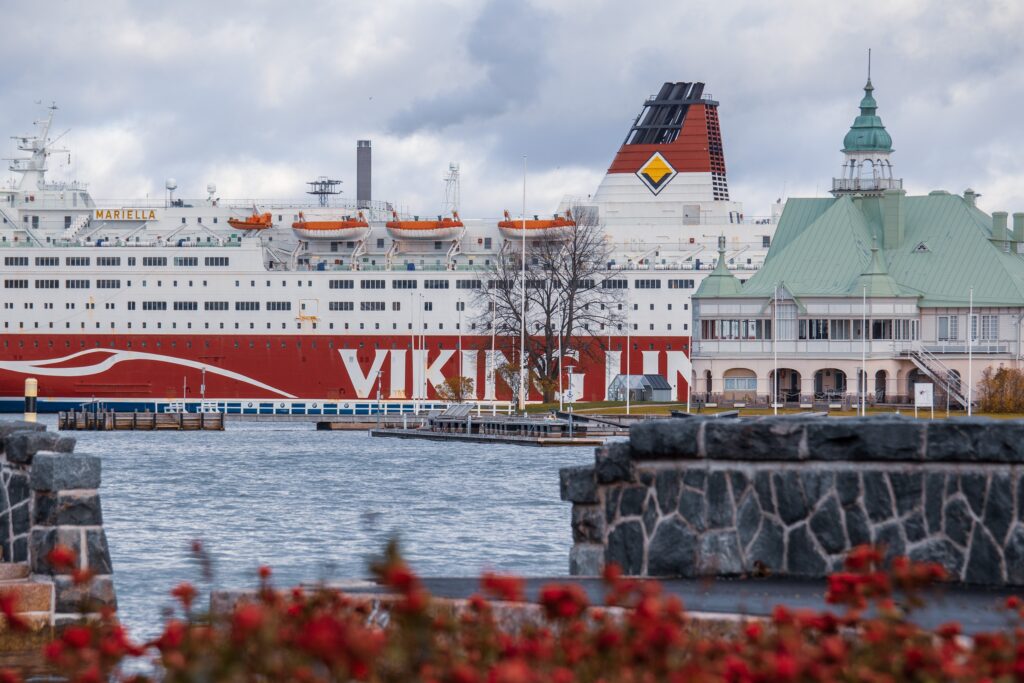
How River Cruises Changed Christmas Markets
Christmas markets were always something fun to do during the darkest month of the year. Christmas lights and decorations illuminated gloomy towns across Europe making them bright and inviting. In the 1990s, river cruises saw a way to capitalize on Christmas markets by offering cruises down the Rhein and Danube rivers to popular destinations. Visitor numbers sprang from a few hundred thousand to over 4 million visitors in the larger cities during the 4-week Advent season.
Is a River Cruise the Best Option to See a Lot of Christmas Markets?
A river cruise does have the benefit of seeing many different Christmas markets in various countries. You wouldn’t have to worry about transportation or accommodation. You unpack once, spend a few hours in a town, and enjoy dinner while sailing down the river to the next port. River cruises also offer city tours and cultural activities through their websites so it’s one-stop shopping for activities as well.
There are also a few negatives associated with river cruising. If you don’t like crowds, being on a boat with a few hundred other people in close quarters may not be for you. You’ll also be going to the most accessible and popular Christmas markets. Remember, it’s not just one boat docking in town.
Another negative is that unless the boat docks in town overnight, you won’t have a lot of time to explore the city around the Christmas market.
But if you have limited time to plan, leaving the details to the cruise company may be a great option for you. Budapest, Vienna, Regensburg, Nuremberg, Cologne, Mannheim, Basel, Prague, Strasbourg, and Amsterdam are some of the most popular ports visited.
Pin This Post for Later!
4. When Are Christmas Markets Open?
Most Christmas markets will be open the last weekend in November through December 24th in Germany and Austria. Some Christmas markets in France and Italy won’t open until the first weekend in December. Christmas markets in Spain and Italy will stay open until January 6. Always check the corresponding website of the markets you are interested in, because some will only be open on weekends.
If you plan to travel to different markets, check their dates as some will be open every day of the week while others will only be open on the weekends.

8. Are Christmas Markets Free?
Most Christmas Markets have free admission. There are a few Christmas markets that charge a small admission, but that is to control crowds in smaller villages, castles, or wine cellars. Thurn und Taxis Castle in Regensburg, and the Ravenna Gorge in the Black Forest are two places that do charge admission. Check each market you want to go to for the hours, days, and any special admission requirements.
6. What Time Does It Get Dark in Europe?
Most of the romantic pictures you see of Christmas Markets are at night. There’s a reason for that. During the day, gray skies can dampen the mood and make your pictures a bit drab. At night, trees are decorated with string lights, and light shows are displayed on cathedrals and town halls. It’s truly magical!
The good news is it gets dark early. If you are in Scotland or England, it’s completely dark by 4pm. Sunset in most of mainland Europe will happen between 4:30-5pm.
7. What to Pack/Wear for Christmas Markets in Europe
November and December are usually wet and chilly. For a Floridian (like me), the cold can be brutal. Snow is not guaranteed, but can be expected in Finland and the Alps. Thermal undergarments, layers, a waterproof coat, and waterproof boots are a must. If you aren’t used to winters, a carry-on may not be enough. Here’s a list of things to bring and wear:
- Wool Hat
- Earmuffs
- Gloves
- Wool sweaters
- Scarf
- Waterproof coat that covers your butt (you’ll thank me for this one when you sit on an iron bench)
- Waterproof boots (it may not snow, but rain is a possibility)
- Light pullover sweaters
- thermal undergarments
- Thick pants preferably with lining.
- Wool socks
- Pantyhose or leggings(these will help keep you warm)
Some of these items like gloves, scarves, a hat, and sweaters you might find at the Christmas market, but it’s good to have at least one of each to start your Christmas Market adventure.
Your precious souvenirs will be well protected with all that extra padding in your luggage. Many people also recommend bringing bubble wrap, but I prefer Scotch Cushion Wrap. I’ve seen many glass shops use this and it’s always protected my breakable souvenirs. Plus, it’s recyclable.
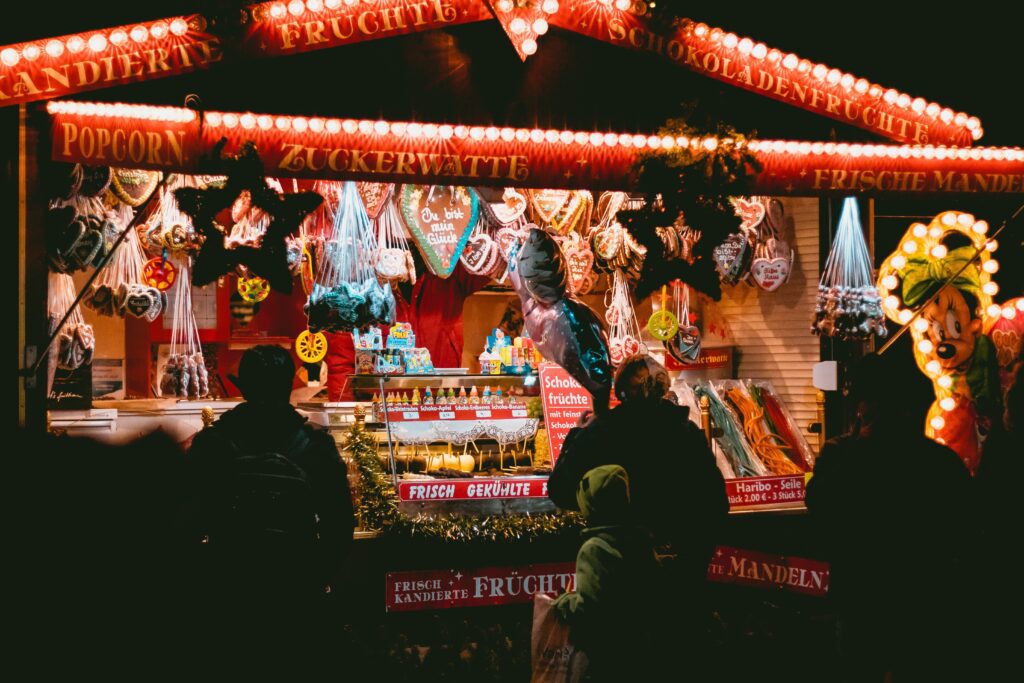
8. Do Christmas Markets Take Credit Cards?
Cash is still “King” at Christmas markets. Many of these vendors are small producers hand-making those special items to brighten up your holiday season. For larger purchases, they may accept credit cards. But to make things easier, stop by an ATM and grab some cash on the way to the Christmas market.
Currencies
Another thing to consider when planning your Christmas market trip is currencies. Not all countries use the Euro. Here are some of the more popular countries for Christmas markets where you will need to exchange euros or other currencies for the local currency:
- Switzerland- Swiss Franc (CHF)
- Czech Republic- Czech Koruna (CZK)
- Denmark- Danish Krone (DKK)
- Hungary- Hungarian Forint (HUF)
- Sweden- Swedish Krona (SEK)
- Poland- Polish Zloty (PLN)
- England, Scotland, Wales, and North Ireland- British Pound (GBP)
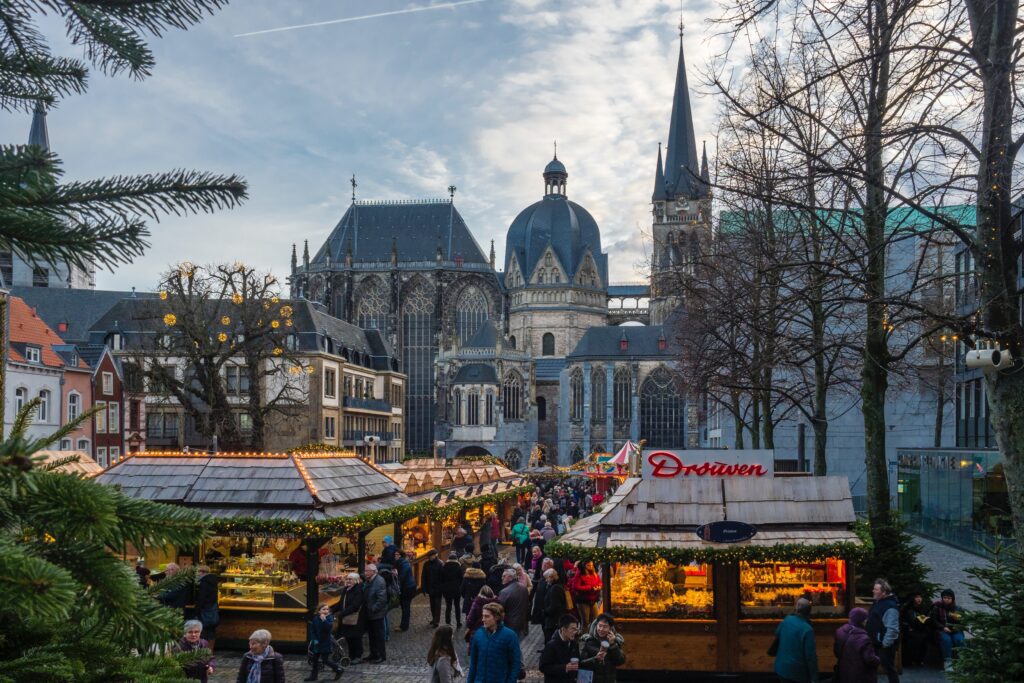
9.How Many Christmas Markets Should I Visit?
I’ve seen many posts where people try to hit as many Christmas markets as they can in a week or two. I think eventually, you’ll notice they are all offering similar things and you might get Christmas Market Burnout.
For a weeklong Christmas Market trip, focus on 4-6 Christmas Markets or towns. If you have 2 weeks or longer, it would be best to keep the 4-6 rule per week. Christmas markets are magical, and you want to keep it magical, not something to tick off a list for your Instagram followers.
Plus, as much as YOU may love Christmas Markets, maybe your spouse, friends, family, and kids aren’t as crazy about it as you are. They may feel one is enough but are willing to indulge your addiction one or two extra times IF it means they get to see something new. Take a look at the city you plan on going to beyond the Christmas market. Are there museums, tours, and activities for everyone?
For a quick glance at what to do in the city or cities you are considering, check GetYourGuide.com.
10. When is the Best Time to Book Accommodations, Flights, Trains, etc.?
I recommend booking your flight and accommodations early, preferably 6 months or more in advance. Flight prices are really good during the summer months. If you plan on staying in Airbnbs or VRBOs, try to book as early as possible since they have less inventory to work with. Booking.com is a great resource to see what is available close to the Christmas markets.
For trains, you will have to wait until 3 months before your trip dates. Be patient!
Leaving everything to the last minute, will be stressful and expensive. Plan ahead! And if you follow the Christmas markets a year in advance (like I did) you will have a better idea of what will be open during your travel time frame.
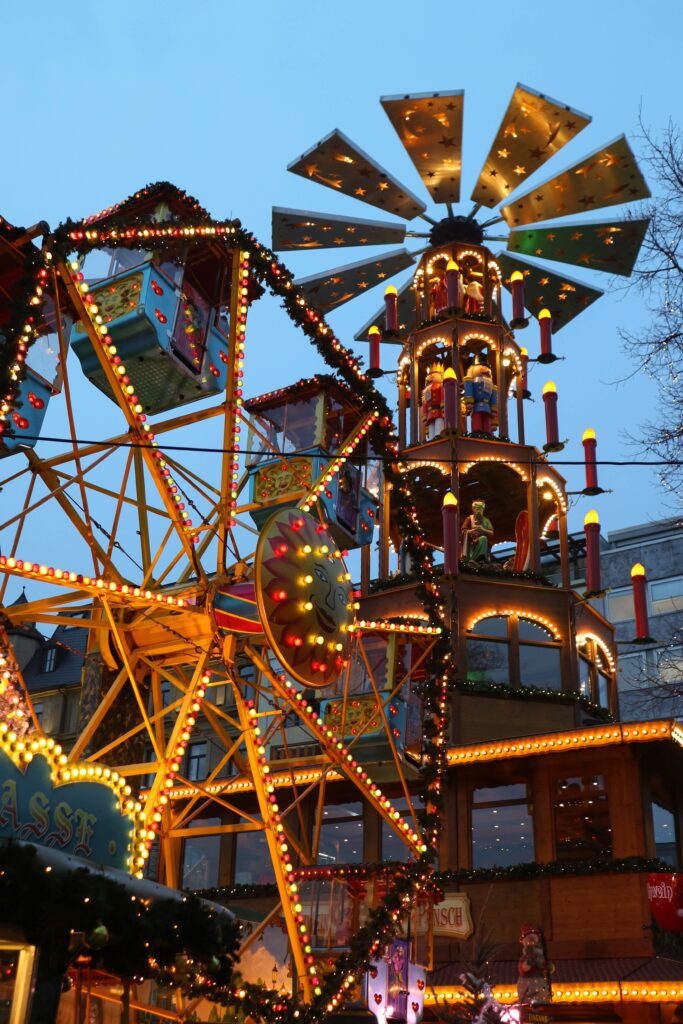
Not really! There are many differences between Christmas markets in different countries. Check out our post that describes the similarities and differences between Christmas markets in Vienna, Madrid, and Catania, Sicily.
Christmas Markets in Three Countries

Pin This!



